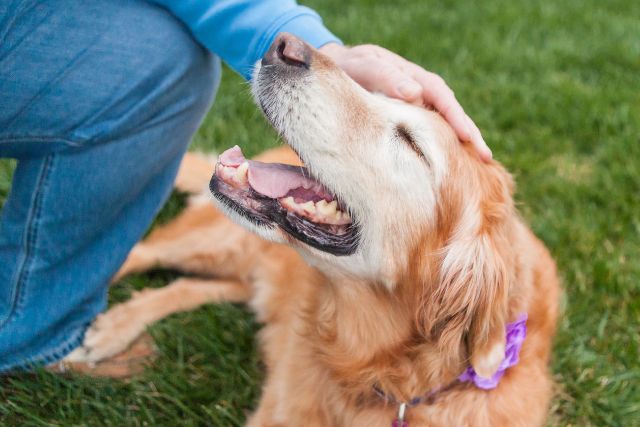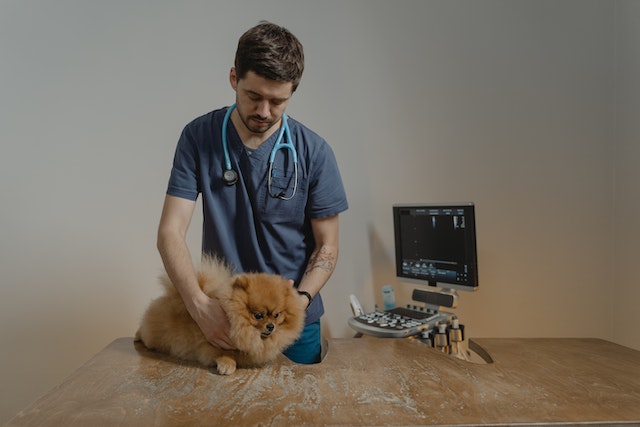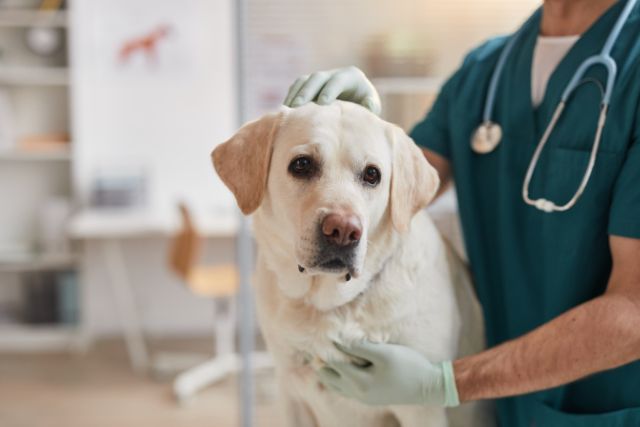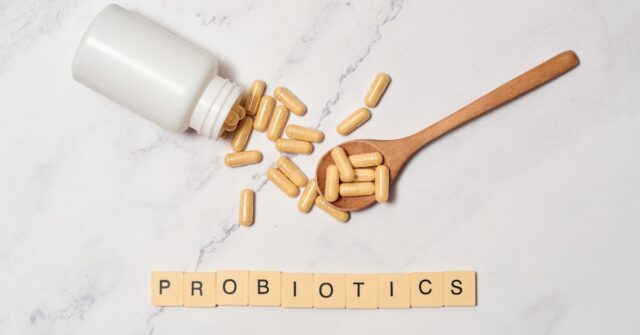Navigating the nutritional needs of senior dogs is crucial for their health and longevity.
This guide will delve into how their dietary requirements change as they age, covering everything from essential nutrients to practical feeding tips, ensuring your senior dog remains happy and healthy throughout their golden years.
Understanding the Aging Process in Dogs
As our furry friends age, their bodies undergo significant changes that affect their nutritional needs.
Just like humans, senior dogs experience a slowdown in metabolism, decreased immune function, and changes in organ health.
Understanding these changes is crucial for providing the best care for your aging pet.


How Aging Affects Metabolism and Nutrition
One of the most noticeable effects of aging in dogs is a slowdown in metabolism. This means that senior dogs require fewer calories than their younger counterparts.
However, their need for high-quality protein increases to help maintain muscle mass. Additionally, older dogs may have a reduced ability to digest and absorb nutrients, necessitating dietary adjustments.
Common Health Issues in Older Dogs
Senior dogs are prone to a variety of health issues, including arthritis, dental problems, kidney disease, and heart conditions. These ailments can impact their nutritional needs and dietary preferences.
For instance, dogs with arthritis may benefit from diets rich in omega-3 fatty acids, while those with kidney disease might require low-phosphorus foods.
Identifying When Your Dog Becomes a ‘Senior’
Determining when your dog is considered a senior can vary by breed and size.
Generally, smaller breeds enter their senior years around 7-10 years old, while larger breeds may be considered seniors as early as 6 years old.
Regular veterinary check-ups can help identify the specific needs of your aging dog.
Key Nutritional Needs for Senior Dogs
As dogs age, their nutritional requirements evolve. Ensuring they receive the right balance of nutrients can help mitigate the effects of aging and maintain their quality of life.


The Importance of Protein in a Senior Dog’s Diet
Protein is essential for maintaining muscle mass and overall health in senior dogs. High-quality protein sources, such as chicken, fish, and lean meats, should be included in their diet.
This helps support muscle maintenance and repair, which is particularly important as muscle loss can be a common issue in older dogs.
Adjusting Caloric Intake as Your Dog Ages
Caloric needs decrease as dogs age due to reduced activity levels and slower metabolism.
Monitoring your dog’s weight and adjusting their food intake accordingly can prevent obesity, which is a common issue in senior dogs.
It’s important to provide enough calories to maintain a healthy weight without overfeeding.
Vitamins and Minerals Crucial for Aging Dogs
Vitamins and minerals play a vital role in supporting the health of senior dogs.
Calcium and vitamin D are essential for bone health, while antioxidants like vitamins C and E can help combat oxidative stress and support cognitive function.
Including these nutrients in your dog’s diet can promote overall well-being.
Addressing Weight Management and Obesity
Weight management becomes increasingly important as dogs age. Maintaining a healthy weight can reduce the risk of various health issues and improve your dog’s quality of life.
How to Assess Your Dog’s Body Condition
Regularly assessing your dog’s body condition is key to managing their weight. You should be able to feel your dog’s ribs without excessive fat covering them.
Additionally, they should have a visible waist when viewed from above. If you’re unsure about your dog’s body condition, consult your veterinarian for guidance.
Dietary Strategies for Weight Loss and Maintenance
If your senior dog is overweight, consider implementing a weight management plan.
This might include feeding smaller, more frequent meals, choosing low-calorie but nutrient-dense foods, and increasing their physical activity through gentle exercises like short walks or swimming.
Always consult with your vet before making significant changes to your dog’s diet or exercise routine.
Supporting Joint and Bone Health
Joint and bone health is a major concern for senior dogs. Proper nutrition can play a significant role in maintaining mobility and reducing discomfort associated with arthritis and other joint issues.


Supplements That Benefit Joint Health
Supplements such as glucosamine, chondroitin, and omega-3 fatty acids can help support joint health. These supplements are known to reduce inflammation, protect cartilage, and improve joint function.
They can be found in specialized senior dog foods or given as separate supplements after consulting with your vet.
Dietary Adjustments to Support Mobility
In addition to supplements, incorporating foods rich in omega-3 fatty acids, such as fish oil or flaxseed oil, can help reduce inflammation and support joint health.
Maintaining a healthy weight is also crucial, as excess weight puts additional strain on the joints. Providing a balanced diet with these considerations can significantly improve your dog’s mobility.
Optimizing Organ Health with Diet
Organ health is another critical aspect of senior dog care. Specific dietary adjustments can help support the functioning of vital organs like the kidneys, heart, and liver.
Dietary Considerations for Kidney Health
Dogs with kidney issues may benefit from diets low in phosphorus and sodium. These diets help reduce the workload on the kidneys and manage symptoms of kidney disease.
Additionally, increasing water intake through wet food or encouraging your dog to drink more can support kidney health.
Foods to Support Cardiac Health
Heart health can be supported by diets low in sodium and rich in essential nutrients like taurine and omega-3 fatty acids.
These nutrients help maintain heart function and reduce the risk of heart disease. Consult your vet for the best dietary options tailored to your dog’s specific needs.
Managing Liver Health Through Diet
Liver health can be managed by providing a diet that is low in copper and high in antioxidants. These adjustments can help reduce the risk of liver disease and support overall liver function.
Regular check-ups and blood tests can help monitor your dog’s liver health and adjust their diet as needed.
Enhancing Cognitive Function Through Nutrition
Cognitive decline is a common issue in senior dogs. Proper nutrition can help support brain health and improve cognitive function, ensuring your dog remains alert and active in their golden years.
Role of Fatty Acids in Brain Health
Omega-3 fatty acids, particularly DHA and EPA, are crucial for brain health. These fatty acids help reduce inflammation and support cognitive function.
Including fish oil or foods rich in omega-3s in your dog’s diet can help maintain their mental sharpness.
Antioxidants and Their Benefits for Cognitive Aging
Antioxidants like vitamins C and E can help protect the brain from oxidative stress and improve cognitive function.
Fruits and vegetables high in antioxidants, such as blueberries and spinach, can be added to your dog’s diet to support brain health. Always consult with your vet before introducing new foods.
Practical Feeding Tips for Senior Dogs
Feeding senior dogs can come with its own set of challenges. Practical tips can make mealtime more enjoyable and ensure they receive the necessary nutrients.


Choosing the Right Type of Food (Wet vs. Dry)
Wet food can be easier for senior dogs to chew and digest, especially if they have dental issues. However, dry food can help maintain dental health by reducing plaque buildup.
A combination of both or specially formulated senior dog food can provide the benefits of both types. Consider your dog’s specific needs and preferences when choosing their food.
How to Handle Reduced Appetite in Senior Dogs
Senior dogs may experience a reduced appetite due to various factors, including health issues or changes in metabolism. Offering smaller, more frequent meals can encourage eating.
Additionally, warming up their food or adding a small amount of low-sodium broth can make it more enticing. If your dog continues to refuse food, consult your vet to rule out underlying health issues.
Feeding Schedules and Practices for Optimal Health
Establishing a consistent feeding schedule can help regulate your dog’s digestion and prevent overeating. Feeding them at the same times each day creates a routine that can be comforting for senior dogs.
Also, provide fresh water at all times to ensure they stay hydrated. Regularly monitor their weight and adjust portions as necessary to maintain a healthy balance.
Local Resources and How to Find Expert Advice
Access to local resources and expert advice can be invaluable when managing the dietary needs of senior dogs. Sydney offers a range of services and professionals dedicated to pet care.


Veterinarians Specializing in Senior Pet Care
Finding a veterinarian who specializes in senior pet care can provide tailored advice and treatments for your aging dog.
They can offer insights into the best dietary options and monitor your dog’s health to make necessary adjustments over time.
Sydney Pet Nutritionists and Diet Experts
Consulting a pet nutritionist or diet expert in Sydney can help create a customized diet plan for your senior dog.
These professionals can offer guidance on selecting the right foods, supplements, and portion sizes to meet your dog’s unique needs.
Where to Find Specialized Senior Dog Food in Sydney
There are numerous pet stores and online retailers in Sydney that offer specialized senior dog food.
Look for brands that focus on high-quality ingredients and cater to the specific dietary requirements of older dogs. Your veterinarian or pet nutritionist can recommend the best options available locally.
Conclusion: Ensuring a Happy, Healthy Golden Age
Caring for a senior dog requires attention to their changing needs and a commitment to their well-being.
Regular check-ups, a balanced diet, and appropriate supplements can make a significant difference in their quality of life.
As you navigate the journey with your aging companion, always seek professional advice when needed to provide the best care possible.


Monitoring Your Dog’s Health Over Time
Regular veterinary visits are crucial for monitoring your dog’s health and catching any potential issues early.
Blood tests, dental check-ups, and physical exams can help track their health status and make informed decisions about their diet and care.
Keep a close eye on any changes in behaviour, appetite, or weight, and report these to your vet.
When to Consult a Professional for Your Senior Dog’s Diet
Consulting with a veterinarian or pet nutritionist is essential when making significant changes to your senior dog’s diet.
These professionals can provide tailored advice based on your dog’s specific health conditions and nutritional needs.
They can also recommend the best supplements and dietary adjustments to support your dog’s overall health.











